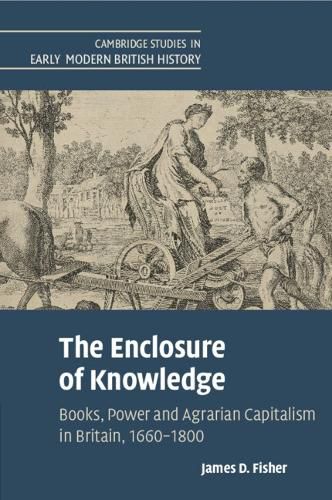Readings Newsletter
Become a Readings Member to make your shopping experience even easier.
Sign in or sign up for free!
You’re not far away from qualifying for FREE standard shipping within Australia
You’ve qualified for FREE standard shipping within Australia
The cart is loading…






The rise of agrarian capitalism in Britain is usually told as a story about markets, land and wages. The Enclosure of Knowledge reveals that it was also about books, knowledge and expertise. It argues that during the early modern period, farming books were a key tool in the appropriation of the traditional art of husbandry possessed by farm workers of all kinds. It challenges the dominant narrative of an agricultural 'enlightenment', in which books merely spread useful knowledge, by showing how codified knowledge was used to assert greater managerial control over land and labour. The proliferation of printed books helped divide mental and manual labour to facilitate emerging social divisions between labourers, managers and landowners. The cumulative effect was the slow enclosure of customary knowledge. By synthesising diverse theoretical insights, this study opens up a new social history of agricultural knowledge and reinvigorates long-term histories of knowledge under capitalism.
$9.00 standard shipping within Australia
FREE standard shipping within Australia for orders over $100.00
Express & International shipping calculated at checkout
The rise of agrarian capitalism in Britain is usually told as a story about markets, land and wages. The Enclosure of Knowledge reveals that it was also about books, knowledge and expertise. It argues that during the early modern period, farming books were a key tool in the appropriation of the traditional art of husbandry possessed by farm workers of all kinds. It challenges the dominant narrative of an agricultural 'enlightenment', in which books merely spread useful knowledge, by showing how codified knowledge was used to assert greater managerial control over land and labour. The proliferation of printed books helped divide mental and manual labour to facilitate emerging social divisions between labourers, managers and landowners. The cumulative effect was the slow enclosure of customary knowledge. By synthesising diverse theoretical insights, this study opens up a new social history of agricultural knowledge and reinvigorates long-term histories of knowledge under capitalism.